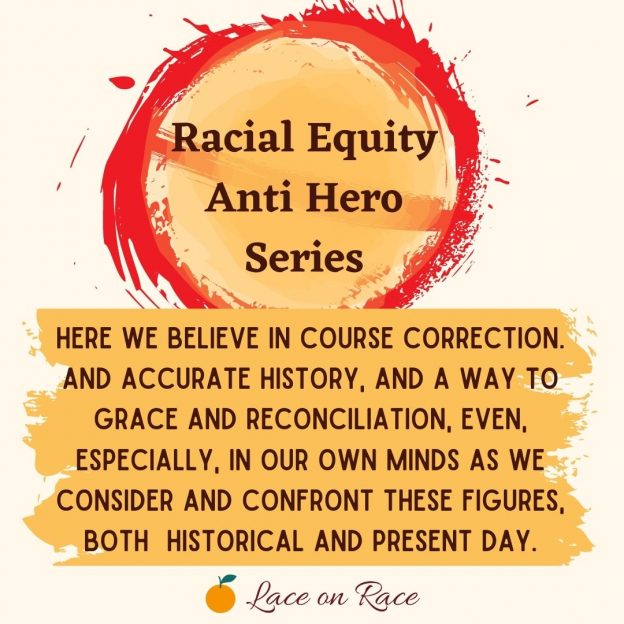At Lace on Race, we feel that, particularly during Black History Month, that it is crucial to tell the full story of the Black Experience.
Because of systemic, institutional, and sometimes very personal racism and white supremacy, our stories are linked to those of white people for good or ill.
A former friend of mine, Lynn, recently attempted to do this by compiling a list of ‘good’ white people; showcasing their choices and exploits, mostly in the way of a snapshot. They would take one good action out of context, and without any discussion of either the rest of the individual’s lives. Nor would he consider counterbalancing his ‘Parade of White Saviors’ with a concomitant listing of white people who were generally known to be neutral or even affirming of Black progress and liberation, but who were harmful to us in large and small ways.
There was strong pushback when I suggested that, absent that counterbalance, the exercise would do nothing for Black and brown people. What it would do would be to lessen the sense of urgency and of personal responsibility and agency for white people, who often like to point to one person doing one isolated and specific action to ‘not all white people’. It can be used as a balm for white people, and salt in the wounds of Black People.
Enter Tiffany Washington.
Fair warning: you will be activated even as you are informed.
Ms Washington provides the exact counterbalance that I suggested to Lynn. She does not go for the usual suspects; instead she turns her attention to figures familiar to us; even some who have gone down in history as advocates for, and even allies to, Black People, but whose choices and behaviors have indeed harmed.
All that said, there is the matter of our doing what we have been trained to do here: which is to hold competing thoughts and perceptions in both hands.
Our collective ethos demands this. Acknowledgement of the snapshot, no matter how unflattering; a deep look at that snapshot and being willing to confront bad actors, no matter how acclaimed, and also the grace which our ethos demands: holding them to account, while also seeing the whole of their lives.
Here we believe in course correction. And accurate history, and a way to grace and reconciliation, even, especially, in our own minds as we consider and confront these figures, both historical and present day.
I expect activation. I expect defensiveness. I also expect authentic reflection, and locating yourselves in the actions that harmed.
It is important in BHM that even as we celebrate the oftentimes massive obstacles and oppressions that Black people have faced, even as we rise, that we talk about what is so often ignored–the source of that oppression; the makers of and colluders with the obstacles that make for Black struggle. Let’s start here.

Leave a Reply